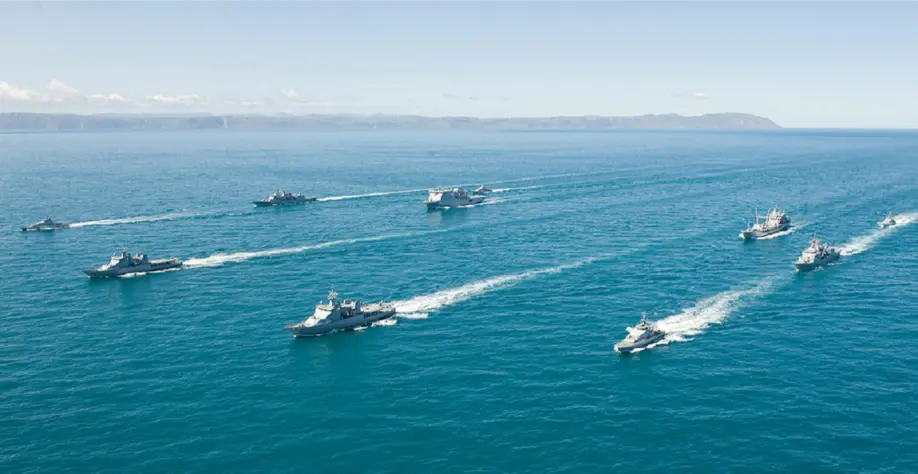The North Atlantic Treaty Organization (NATO) remains the most significant security arrangement in the world today, even though it was created during the Cold War era (1949). This security alliance’s unique military might and ability to retaliate against an attack make it unique. NATO encourages democratic principles, allowing its members to consult and work together on defence and security-related topics to solve disputes, foster trust, and ultimately, avert conflict. It is based on shared principles of liberty, human rights, and the rule of law; the alliance ensures a feeling of durable peace and supports peace and stability through partnerships with members.
Other security alliances have not been able to sustain as NATO has due to the participation of the United States. NATO is dedicated to resolving conflicts peacefully; it possesses the hard power to execute crisis-management operations if peace negotiations are unsuccessful. At the moment, NATO has 30 member states, and there are three more candidate states in contention. However, in 2019, India conducted its first political conversation with NATO out of the limelight in Brussels. Speculations that India may emerge as a member of the alliance soon open the door for great excitement and development for many emerging sectors of the nation.
India and NATO Plus
The world’s growing challenges have resulted in the coming together of India and the U.S. NATO Plus is a strategy designed to unite five allies of the US and NATO nations, namely, Israel, New Zealand, Australia, Japan, and South Korea to strengthen international defence cooperation. One of the “Plus Five” countries identified by U.S. legislators is India. There is sufficient evidence that suggests adding India as the sixth member of the NATO Plus would benefit the U.S. enormously and would also be imperative for India to assert itself as a robust Asian power able to respond to the tension caused by the presence of China and their action, especially in the region of Ladakh.
China is a pivotal factor in pushing India and the U.S. together. American Congressman Ro Khanna (D-CA) confirmed this by highlighting, “The reason it’s in the interests of the United States is we need a strong partnership with India. Defence partnership, a strategic partnership, especially because we are two democratic nations and with the rise of China and with the rise of Putin, this alliance is critical for the United States.” he also added that including India as the sixth member of NATO Plus “would propel New Delhi toward a defence security alignment with the United States”. Therefore, a rising US-India alliance benefits both countries since it will make the U.S. a much more dependable and powerful partner while benefiting India’s security.
Indian significance
Since 2019, the tensions between India and China have been progressing and have caused imminent concern. In 2020, when hostilities were at their highest, tens of thousands of soldiers gathered on either side of India’s northern border. The Indian army responded by deploying more soldiers to their posts, which could be interpreted as one sign of how seriously it takes China’s impending threat. The chances of strategic cooperation between China and Pakistan may also be a factor for India to join NATO plus to develop a strategic military alliance with the U.S. The relationship between China and India has shifted into a more unstable and unpredictable period. Their failure to resolve the 2020 border conflict amicably breaks a valuable precedent, leaving each side unsure of which redlines the other will adhere to and follow.
Given India’s efforts to achieve self-sufficiency, possible membership in NATO can be deemed historic and momentous. Not only would this expand and enable India’s hard power capacities, but it could also ameliorate the overall defence arsenal of the Indian army. To improve total defence capabilities, the domestic would benefit significantly along with the public-private partnerships in the security sectors. India’s promise and willingness to be capable of resisting the expansive Chinese influence and Russian interference, the U.S. hopes for a strong alliance with India. The decision has the potential to create new opportunities for numerous Indian small and medium businesses, the defence sector, commercial enterprises, the technology sector, artillery and ballistic missile producers, and engineering technicians.
India seeks to defeat and come to terms with the dragon in its region by defying definitional boundaries and forming an alliance with the U.S. The QUAD arrangement further illustrates an intent to tackle China through mutual cooperation. According to the Ministry of Global Affairs, India has collaborated with NATO for several years. India and NATO collaborate to safeguard shipping lines where maritime piracy is a hazard. As the challenges in the reign increase, the one who can respond to them quickly and efficiently might control the progression of Asia.
